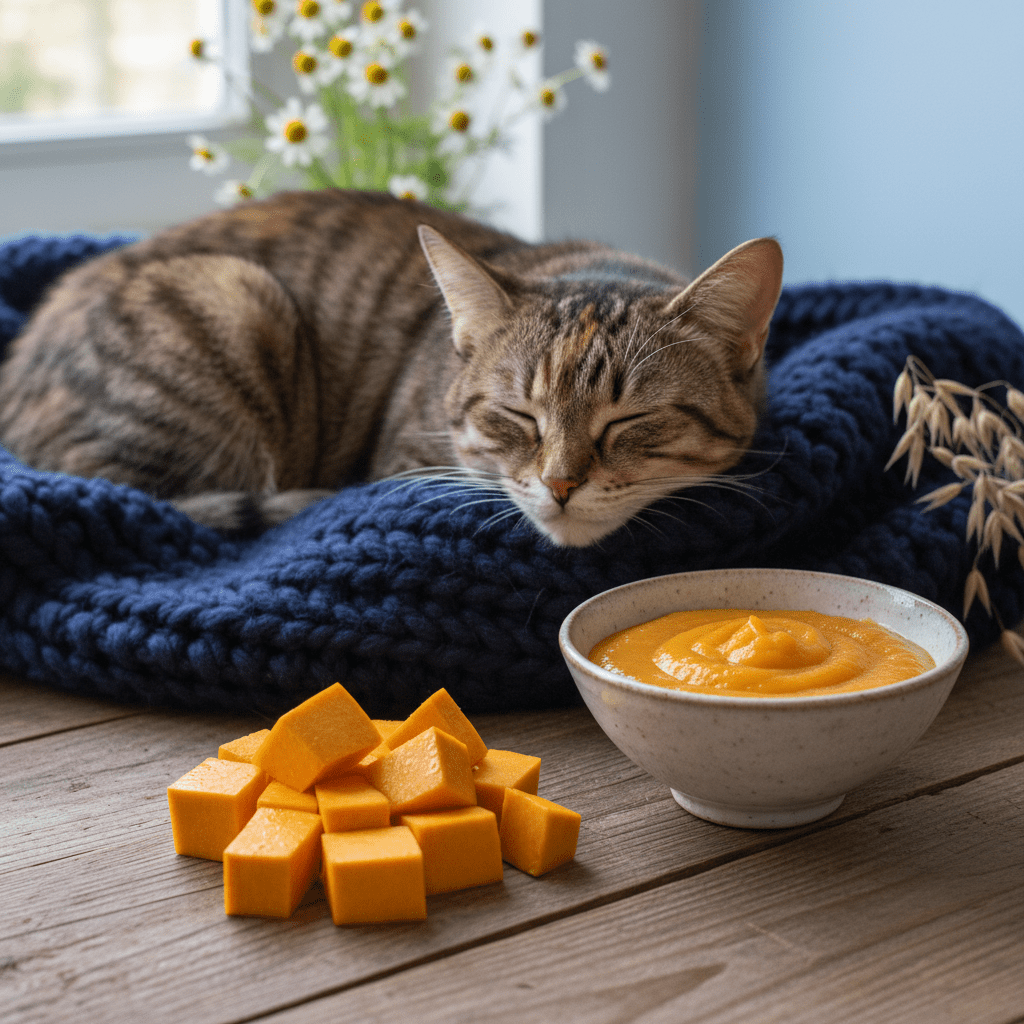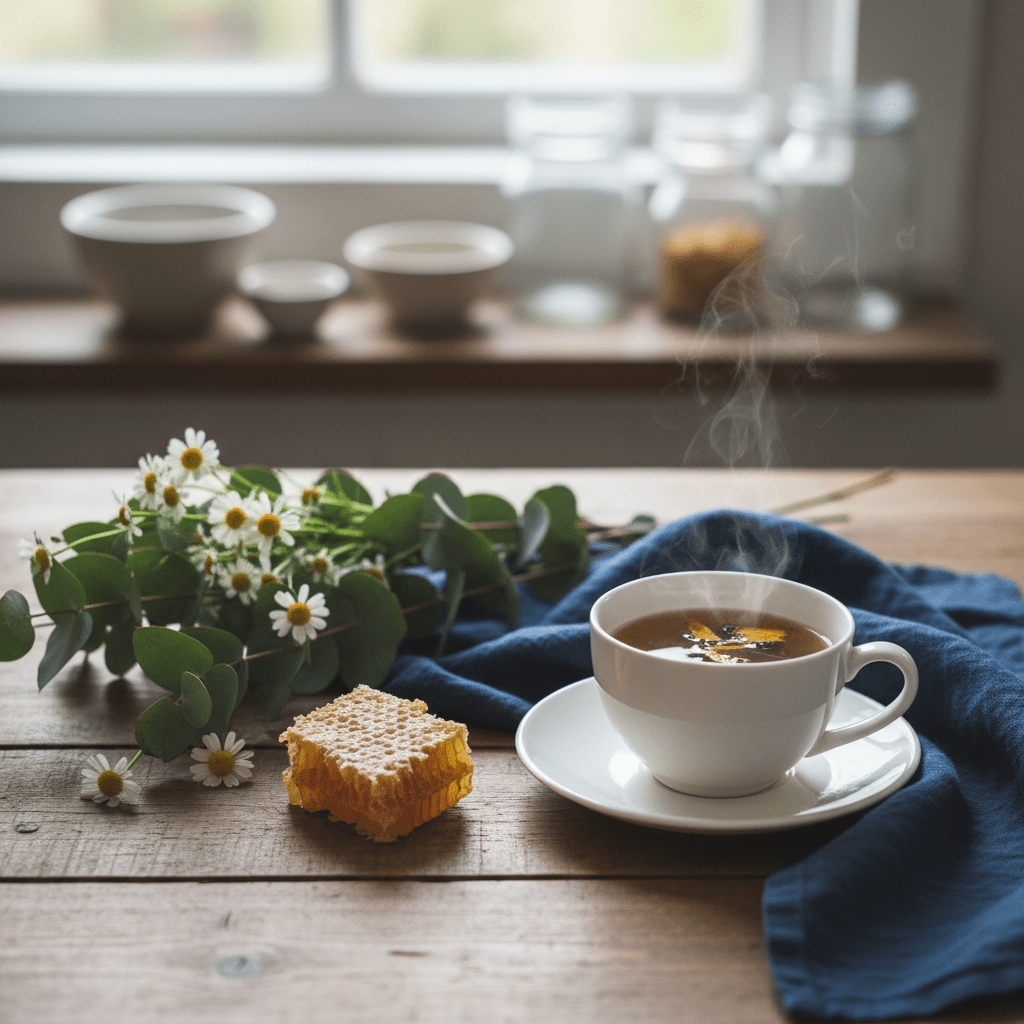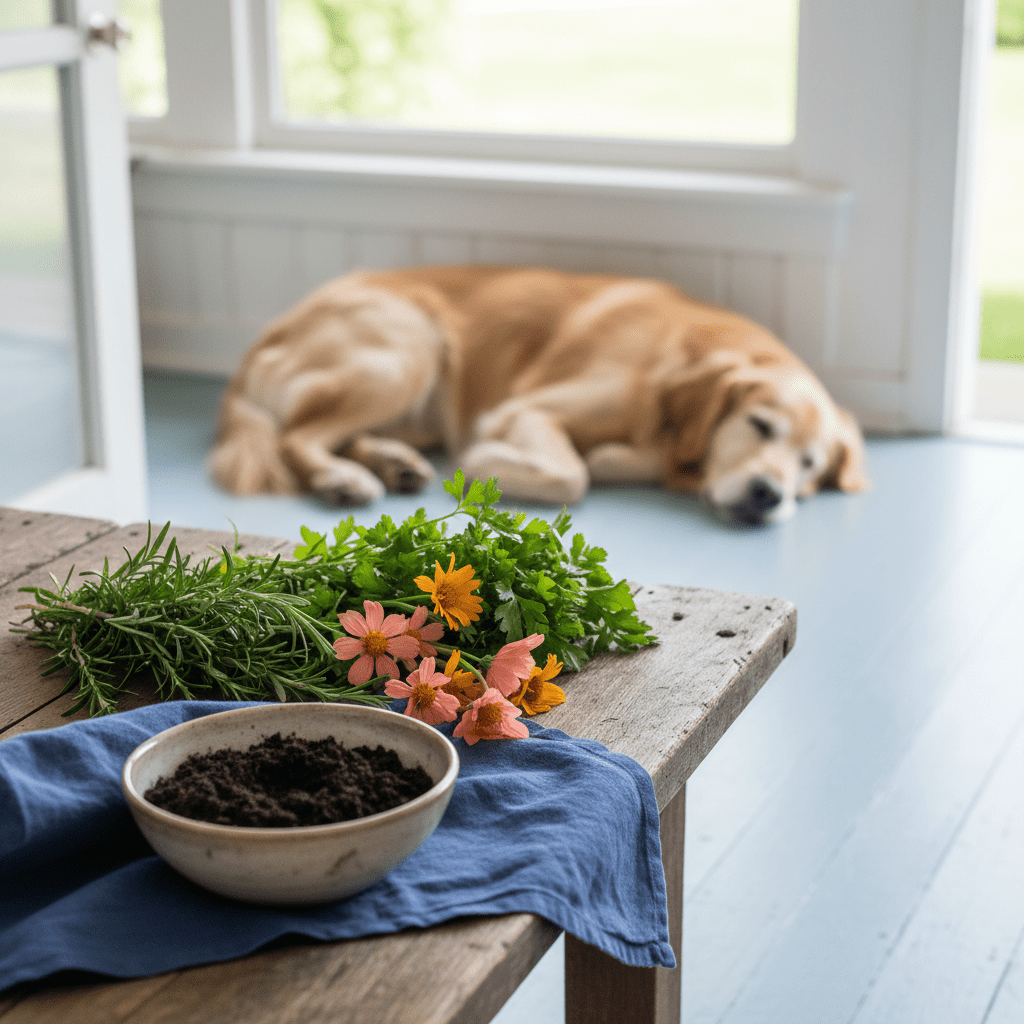Key Takeaways
- Pumpkin is a natural remedy commonly used to help manage cat diarrhea.
- It provides gentle yet effective relief for digestive issues in cats.
- Pumpkin helps firm loose stools in cats experiencing tummy troubles.
- This orange superfood supplies essential nutrients during digestive upset.
Table of Contents
- Why Pumpkin? Understanding Its Role in Cat Digestive Care
- Is Pumpkin Safe for Cats? What Every Pet Parent Should Know
- The Nutritional Powers of Pumpkin: A Vet-Explained Breakdown
- How to Safely Feed Pumpkin to Your Cat: Simple Tips for Real Results
- When Pumpkin Works, And When to Ask For Help
- Comparing Digestive Supports: Pumpkin vs. Other Natural Options
- Real-Life Solutions: Recipes & Hacks for "Pumpkin-Resistant" Cats
- Beyond Pumpkin: Natural Homeopathic Support for Cat Digestive Health
- Hope, Help & Longer, Happier Lives: Our Promise to Your Pet Family
Pumpkin for Cat Diarrhea: Gentle Digestive Care
When your cat's tummy troubles strike, you want relief that's gentle yet effective. Pumpkin for cat diarrhea offers a time-tested, natural approach that many pet parents swear by. This orange superfood can help firm loose stools while providing essential nutrients your feline friend needs during digestive upset.
As someone who's navigated countless midnight emergencies with my late Border Collie mix, Tango, I understand that desperate feeling when your pet isn't well. After prescription medications left both my preemie daughter and Tango struggling with harsh side effects, I discovered the power of gentle, natural remedies that work with the body's healing processes.
If you're seeking a convenient, gentle solution for your cat's digestive issues, consider the Cat Laxative Constipation Relief for support with constipation, or explore natural cat supplements for treating common health issues in cats and kittens to help your feline feel their best.
Why Pumpkin? Understanding Its Role in Cat Digestive Care
Cat diarrhea stems from various triggers that disrupt normal digestive function. Sudden diet changes top the list, followed by stress from travel or household changes, food intolerances, parasites, and underlying infections. Even something as simple as switching litter brands can upset sensitive felines.
Pumpkin works through its unique fiber profile. Soluble fiber acts like a gentle sponge, absorbing excess water in loose stools while providing bulk to form healthier bowel movements. Unlike harsh medications that force changes, pumpkin supports your cat's natural digestive rhythm without creating dependency or rebound effects.
This aligns perfectly with our "Nurture with Nature" philosophy at BestLife4Pets. When Bailey, a nervous shelter rescue, developed stress-induced diarrhea after adoption, his new family combined plain pumpkin with our gentle homeopathic digestive support pellets. Within three days, Bailey's stools normalized, and his appetite returned, no harsh chemicals or concerning side effects.
Is Pumpkin Safe for Cats? What Every Pet Parent Should Know

Not all pumpkin products are created equal for feline consumption. Plain canned pumpkin (100% pumpkin, no additives) provides the safest option, while pumpkin pie filling contains dangerous spices, sugar, and preservatives that can worsen digestive issues or cause toxicity.
| Pumpkin Form | Safe for Cats? | Usage Notes | Avoid If |
|---|---|---|---|
| Plain canned pumpkin | ✓ Yes | Mix ½-1 tsp into food | Contains additives or spices |
| Fresh cooked pumpkin | ✓ Yes | Steam and puree without seasoning | Raw or includes skin/seeds |
| Pumpkin pie filling | ✗ No | Never feed | Contains sugar, spices, preservatives |
| Raw pumpkin/seeds | ✗ No | Choking hazard | Hard to digest, potential blockage |
Our homeopathic digestive support remedies capture pumpkin's benefits in easy-to-administer pellets, no messy spooning or food rejection. These tasteless pellets dissolve quickly, making them perfect for cats like Fiona's chronically ill kitty who needs stealth dosing without texture changes that trigger food aversion.
The Nutritional Powers of Pumpkin: A Vet-Explained Breakdown
Pumpkin's digestive benefits come primarily from its dual fiber content. Soluble fiber absorbs excess intestinal water, while insoluble fiber adds beneficial bulk. A quarter-cup of plain canned pumpkin contains approximately 3 grams of fiber, significant for cats who typically consume minimal fiber in their carnivorous diets.
Beyond fiber, pumpkin delivers immune-supporting Vitamin A, hydration-balancing potassium, and antioxidants that promote healthy skin and coat. For Wellness Wendy types seeking daily natural support, these bonus nutrients mean fewer supplements cluttering the feeding routine.
Veterinary studies confirm that added fiber improves stool quality in cats experiencing mild gastrointestinal upset. This research supports why many veterinarians recommend pumpkin as a first-line complementary approach alongside professional treatment, it's gentle, nutritious, and rarely causes adverse reactions when used appropriately.
How to Safely Feed Pumpkin to Your Cat: Simple Tips for Real Results
Starting pumpkin for cat diarrhea requires a gradual approach to avoid overwhelming your cat's sensitive digestive system. Begin with a pea-sized amount (approximately ½ teaspoon) of plain canned pumpkin mixed thoroughly into your cat's preferred food. Most cats accept the mild flavor when blended with familiar wet food, though some may detect texture changes in dry kibble.
Monitor your cat's response over the first 24-48 hours, watching for improved stool consistency and maintained appetite. If well-tolerated, you can gradually increase the amount, but never exceed 4 teaspoons daily for large adult cats. Golden-Years Gary's senior Lab benefited from this slow introduction method, avoiding the digestive upset that can occur when fiber intake jumps too quickly.
| Cat Size/Age | Starting Amount | Maximum Daily | Special Considerations |
|---|---|---|---|
| Kittens (under 6 months) | ¼ teaspoon | 1 teaspoon | Consult veterinarian first |
| Small adults (under 8 lbs) | ½ teaspoon | 2 teaspoons | Monitor closely for acceptance |
| Large adults (over 10 lbs) | 1 teaspoon | 4 teaspoons | Divide into multiple feedings |
Track your cat's stool quality, noting any orange discoloration (indicating too much pumpkin) or changes in eating habits. For Feline Fiona's chronically sensitive cats, our tasteless homeopathic pellets eliminate the guesswork while providing gentle digestive support without the mess or measurement challenges of fresh pumpkin.
When Pumpkin Works, And When to Ask For Help

Pumpkin for cats with diarrhea shows best results with mild, stress-induced digestive upset or dietary indiscretion. Most pet parents notice firmer stools within 24-48 hours when the underlying cause is temporary. Rescue Rachel often sees success with newly adopted cats whose systems settle once they adjust to consistent feeding schedules and reduced stress.
However, pumpkin has clear limitations. Bloody stools, persistent vomiting, lethargy, or diarrhea lasting more than 48 hours requires immediate veterinary attention. These symptoms often indicate infections, parasites, or serious underlying conditions that need professional diagnosis and treatment beyond what any home remedy can address.
Timeline for Pumpkin Results
24-48 hours: Mild improvement expected for diet-related issues
48-72 hours: Consult veterinarian if no improvement
Immediate care needed: Blood in stool, vomiting, or severe lethargy
When Tango experienced digestive wobbles during his senior years, our veterinarian partnered with us to combine gentle homeopathic support with professional monitoring. This collaborative approach gave us the best outcomes, natural relief when appropriate, with medical intervention when necessary. Remember: pumpkin supports healing, but it's not a substitute for professional veterinary advice.
Comparing Digestive Supports: Pumpkin vs. Other Natural Options
Different pumpkin preparations offer varying benefits and challenges for cat owners. Fresh cooked pumpkin provides maximum nutrient retention but requires time-consuming preparation and proper storage. Plain canned pumpkin offers convenience and consistent fiber content, while our homeopathic digestive pellets deliver targeted support without the mess or measurement guesswork.
Beyond pumpkin varieties, several natural approaches support feline digestive health. Probiotics restore beneficial gut bacteria but require refrigeration and may not survive stomach acid. Bland diets like boiled chicken provide temporary relief but lack complete nutrition for extended use. Our pellet-based remedies combine convenience with effectiveness, making them ideal for multi-pet households like those Rescue Rachel manages.
| Natural Option | Speed of Action | Ease of Use | Picky Cat Friendly | Long-term Safety |
|---|---|---|---|---|
| Plain Pumpkin | 24-48 hours | Moderate (measuring required) | Mixed acceptance | Excellent |
| BestLife4Pets Pellets | 24-72 hours | Simple (pre-measured) | Tasteless, invisible dosing | Excellent |
| Probiotics | 3-7 days | Moderate (refrigeration) | Flavor dependent | Good |
| Bland Diet | 12-24 hours | High preparation time | Usually accepted | Short-term only |
When prescription medications become necessary for serious infections or chronic conditions, natural supports like pumpkin for cat diarrhea can complement veterinary treatment. Our homeopathic pellets work alongside prescribed therapies, providing gentle support during recovery without interfering with medical protocols. This integrated approach helped countless pet families achieve faster, more comfortable healing for their beloved cats.
For cats experiencing digestive upset due to parasites, you may want to explore a broad spectrum cat dewormer remedy to address underlying causes of diarrhea.
Real-Life Solutions: Recipes & Hacks for "Pumpkin-Resistant" Cats
Even the most determined cat parents encounter felines who refuse traditional pumpkin preparations. For these discerning pets, blending small amounts of plain pumpkin into strongly flavored wet foods often masks the texture and taste. Mixing with tuna juice, bone broth, or favorite treats can transform rejection into acceptance within a few attempts.
Our tasteless homeopathic pellets solve the "picky eater" challenge entirely. Simply sprinkle the tiny pellets over dry kibble or mix into wet food, most cats consume them without detection. This invisible dosing method works perfectly for Feline Fiona's chronically sensitive cats who reject any dietary changes or new textures in their carefully managed routines.
For creative pet parents, simple DIY approaches can work wonders. Freeze small portions of pumpkin puree in ice cube trays for summer treats, or create "pumpkin sandwiches" by layering tiny amounts between favorite treats. However, never let treats replace balanced nutrition, think of pumpkin as digestive support, not a meal replacement.
Community Success Story
Jasper's Transformation: "My rescue tabby hated spooned puree and would walk away from his bowl. Once we switched to BestLife4Pets pellets, he licked his kibble clean every meal. His loose stools firmed up within three days, and I didn't have to battle him twice daily!"
When all approaches fail, consult your veterinarian about underlying causes. Sometimes persistent diarrhea indicates food allergies, inflammatory conditions, or other issues requiring professional diagnosis. Our gentle remedies complement veterinary care but never substitute for proper medical evaluation when symptoms persist beyond 48 hours.
For more tips on what foods are safe or unsafe for your feline, check out this guide on best and worst human foods for cats.
Beyond Pumpkin: Natural Homeopathic Support for Cat Digestive Health

BestLife4Pets' digestive remedies work by supporting your cat's natural healing processes rather than forcing quick fixes. These tiny, tasteless pellets dissolve easily in food or water, providing targeted relief without the stress of restraining cats for liquid medications. The gentle approach guides the body toward balance, potentially easing digestive discomfort without harsh chemicals or unwanted side effects.
Our community shares countless stories of hope and healing. One shelter volunteer reported that newly rescued cats with stress-related diarrhea showed improvement within 48 hours of starting our pellets alongside gradual diet transitions. Golden-Years Gary's senior cat avoided multiple expensive vet visits by using our remedies for minor digestive upsets, saving both money and stress for his aging feline companion.
Every purchase supports our charitable mission to help senior and special-needs pets find loving homes. When you choose natural, gentle care for your cat's digestive health, you're also contributing to rescue efforts nationwide. This community-centered approach reflects our belief that every pet deserves compassionate care, regardless of their family's circumstances.
If your cat's digestive issues are accompanied by signs of liver stress, consider supporting their system with a cat hepatic liver support remedy for additional wellness benefits.
For more information on maintaining your cat's health, you might also find these tips for preventing kidney disease in cats helpful.
To learn more about the role of fiber in digestive health, see this overview of fiber and its benefits.
Hope, Help & Longer, Happier Lives: Our Promise to Your Pet Family
Every cat's digestive journey is unique, but no pet parent should navigate challenges alone. Whether you're dealing with occasional loose stools or chronic sensitivities, gentle solutions like pumpkin for cat diarrhea combined with professional veterinary guidance offer the best path forward. We celebrate each success story, from rescue cats finding stability to senior pets enjoying comfortable golden years.
Questions arise at all hours when our beloved cats aren't feeling well. That's why our community stays connected through late-night DMs, shared experiences, and collaborative problem-solving. Join thousands of pet parents who've discovered that nurturing with nature creates lasting wellness for the cats we cherish as family members.
For a deeper dive into what makes up your cat's diet and how to optimize it, explore this comprehensive resource on cat food.
Frequently Asked Questions
How does pumpkin help manage diarrhea in cats and support their digestive health?
Pumpkin contains soluble fiber that gently absorbs excess water in loose stools, helping to firm them up. It supports your cat's natural digestive rhythm by adding bulk without harsh effects, making it a gentle option for digestive relief.
Is it safe to feed my cat pumpkin, and what types of pumpkin should I avoid?
Yes, feeding plain canned pumpkin is safe for cats and often recommended for digestive support. Avoid pumpkin pie filling or any pumpkin products with added sugars, spices, or additives, as these can upset your cat’s stomach.
What is the recommended way to introduce pumpkin into my cat's diet for digestive relief?
Start with a small amount of plain canned pumpkin, about a teaspoon mixed into your cat’s food, and observe how they respond. Gradually adjust the amount as needed, ensuring it doesn’t worsen diarrhea or cause other issues.
When should I consider seeking veterinary help instead of relying on pumpkin for my cat's diarrhea?
If your cat’s diarrhea lasts more than a couple of days, is accompanied by vomiting, lethargy, or signs of dehydration, it’s time to consult your vet. Pumpkin supports mild digestive upset but isn’t a substitute for professional veterinary advice when symptoms persist or worsen.



